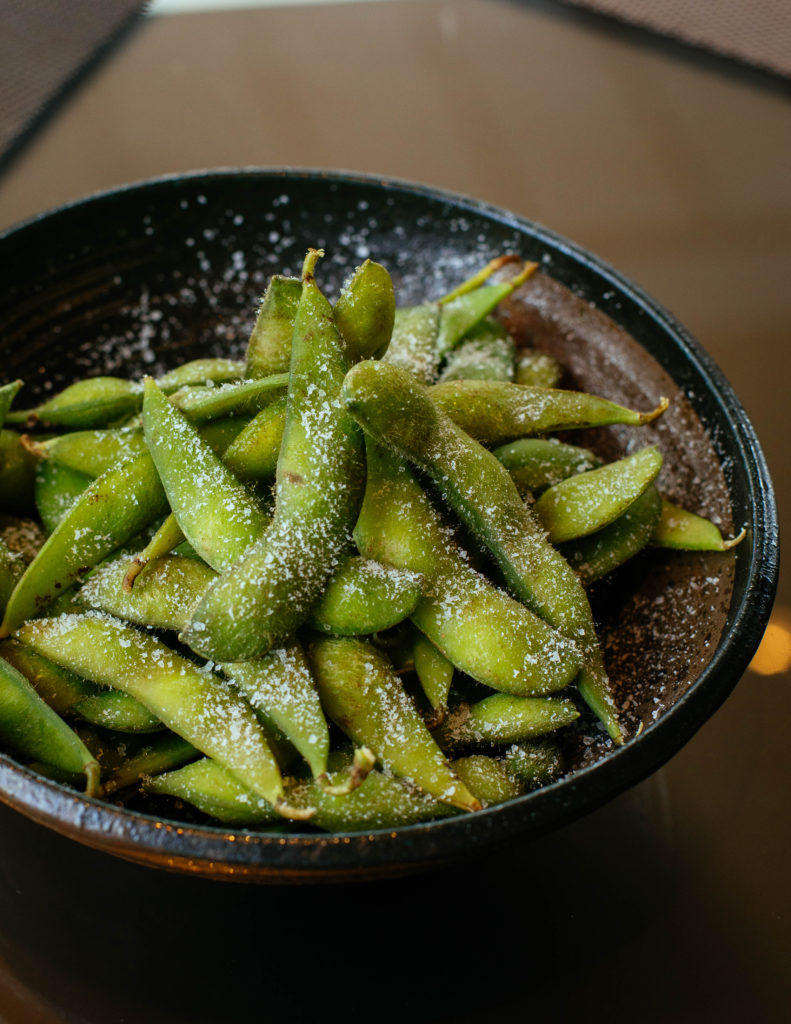Soy has gotten a bad rap over the years and many people avoid it due to concerns about its relationship to breast cancer or thyroid disease (hypothyroidism). This blog will discuss the science about soy’s impact on these disease states, why the quality of the soy you eat matters, and what to choose if you do eat soy.
Health Benefits
Soybeans are a good source of several nutrients including fiber, copper, calcium, magnesium and the B vitamins. Soy is also a complete plant-based protein, which means it contains all the essential amino acids. Consuming unprocessed soy foods like edamame, miso, tempeh, or tofu is linked to lower rates of heart disease and cancer.
Soy and Breast Cancer
One thing I hear commonly from women is that they avoid eating soy because they have heard it’s linked to breast cancer. This is likely because the isoflavones in soy are phytoestrogens, meaning they are able to bind to the estrogen receptors in our bodies and have a weak estrogenic effect. One common misconception is that soy actually contains estrogen, which is simply not the case. Recent studies suggest that soy intake has not been found to be linked to increased risk of breast cancer, and actually may be protective due to its isoflavone compounds’ ability to block more harmful human estrogens. Moreover, genistein is also a potent inhibitor of a process called angiogenesis. Uncontrolled angiogenesis, or the formation of new blood vessels, is involved in cancer cell growth and metastasis.
Bottom line: The research does not support a link between soy intake and increased risk of breast cancer in humans. If you have breast cancer or are at risk for it, you can still enjoy whole, unprocessed forms of soy, just keep it to 1-2 servings weekly.
Soy and Thyroid Health
Iodine is a mineral found in seaweed, dairy and fortified salt. It is taken up by the thyroid gland and used to make thyroid hormone. Without adequate iodine to make thyroid hormones, thyroid stimulating hormone (TSH) secreted from the pituitary remains high and hypothyroidism may occur. The isoflavone compounds found in soy, genistein and daidzein, may block the uptake of iodine by the thyroid gland, thereby contributing to hypothyroidism.
One review found that in people without hypothyroidism or iodine deficiency, soy foods did not seem to have a negative impact on thyroid function. Another study gave those with subclinical hypothyroidism a high dose of soy phytoestrogens and found that it had no clinical significance on worsening thyroid function. However, hypothyroid individuals who are taking thyroid hormone replacement may need to be cautious with the timing and quantity of soy as it can interfere with the medications’ absorption.
Additionally, a 2017 study found that intake of isolated soy protein without isoflavones in subjects with subclinical hypothyroidism had no effect on thyroid function. The subjects also showed improvements in fasting glucose, insulin resistance and CRP (a marker of inflammation). More research may be needed to determine if soy may pose more of a problem for those who are deficient in iodine, and whether soy without its isoflavones may be better for those with subclinical hypothyroidism, but current research has not found a strong link.
Bottom line: If you take thyroid medication, avoid eating soy foods 3 hours before or 1 hour after taking your medication. If you have subclinical hypothyroidism, enjoy soy in moderation (no more than 1-2 servings weekly). Make sure you are eating enough iodine rich foods or take a supplement if necessary.
Soy and Testosterone in Men
I often hear from men a reason they avoid soy is because they fear it will decrease their testosterone levels. Testosterone is the primary sex hormone in men, and the belief is that eating soy will increase levels of estrogen, therefore wreaking havoc on men’s endocrine system, leading to lower levels of testosterone. However, the literature is just not consistent with this belief.
In fact, eating soy, can be more protective for men in more ways including cardiovascular health and prostate health. A 2009 study published in the American Journal of Clinical Nutrition supports the positive effect on eating soy for decreased risk of prostate cancer.
Bottom Line: Eating soy does not impact men’s testosterone levels. Including soy in moderate amounts can indeed offer protective benefits for men’s health.
Considerations About Quality
The main caveat about eating soy is that the quality is SO important. Much of the soy grown here has been genetically modified to make the soybean more resistant to pesticides like glyphosate (which is classified as a likely carcinogen). Choosing organic, non-GMO soy means that you are less likely to be exposed to both new strains of proteins that your immune system may not recognize and weed killers like glyphosate. The other important thing to take note of is that not all soy foods are created equal. If you choose to eat soy, make sure it is in its whole, unprocessed form and avoid soy products that are refined and processed.
Soy foods to enjoy:
- Edamame (fresh soybeans)
- Tofu
- Tempeh
- Soymilk
- Miso
- Natto
Soy foods to avoid:
- Soy protein isolate
- Soy sauce (try liquid aminos!)
- Soybean oil
- Soy lecithin
Never tried tofu before? Check Out some of our Favorite Recipes:
Buffalo Tofu with Spicy Ginger Slaw
Mushroom Ramen with Baked Tofu



